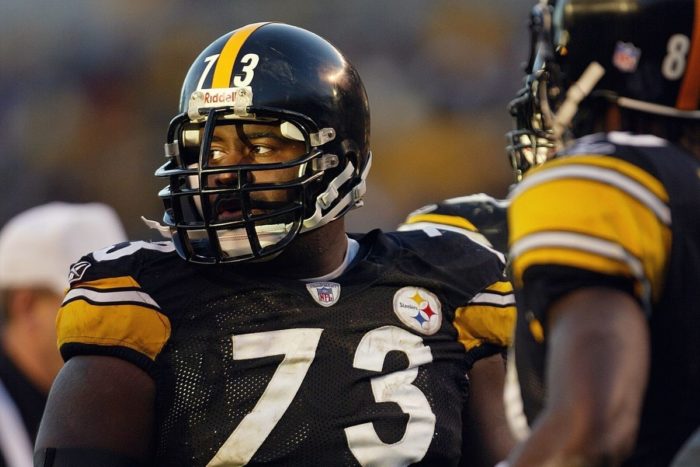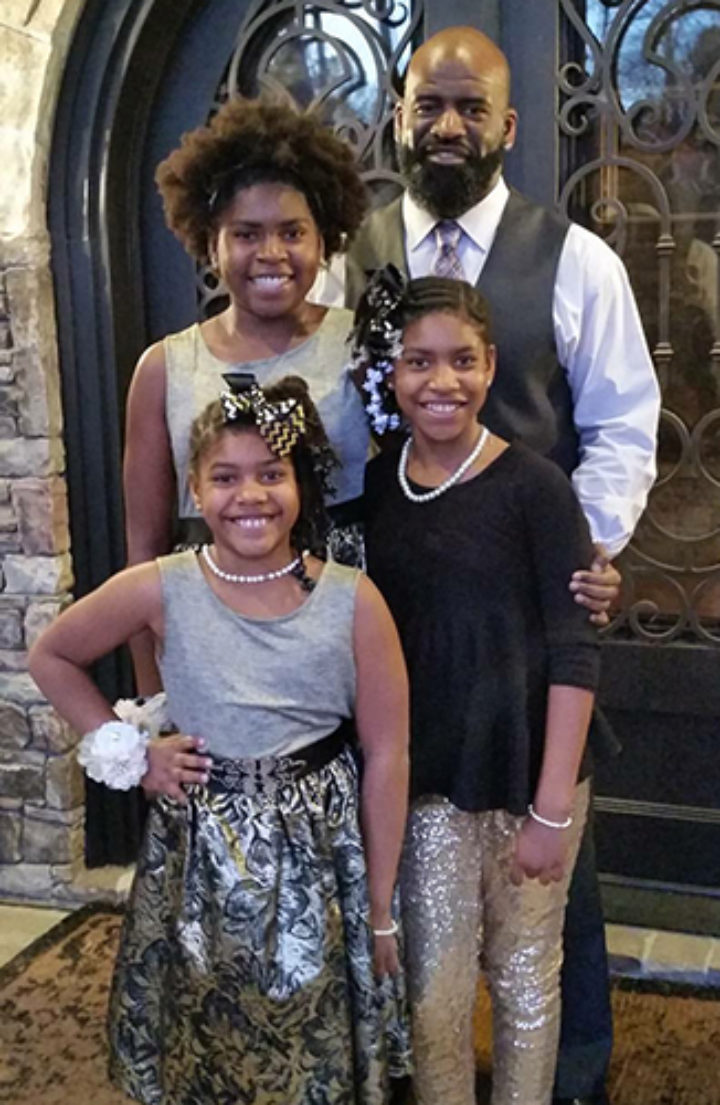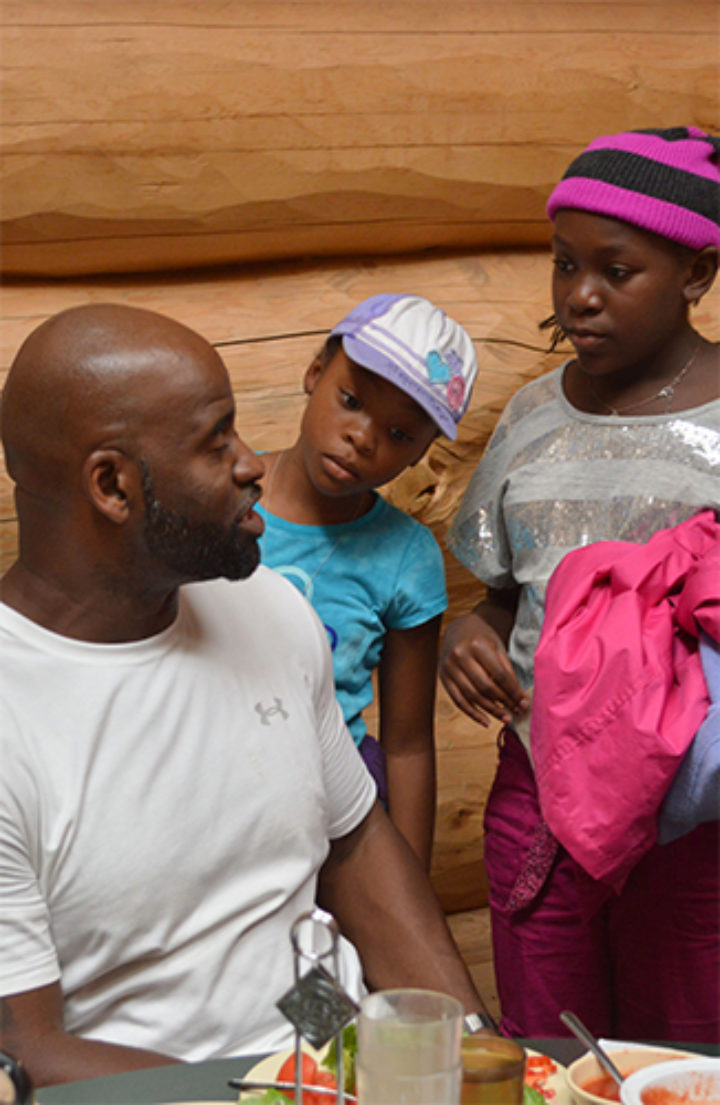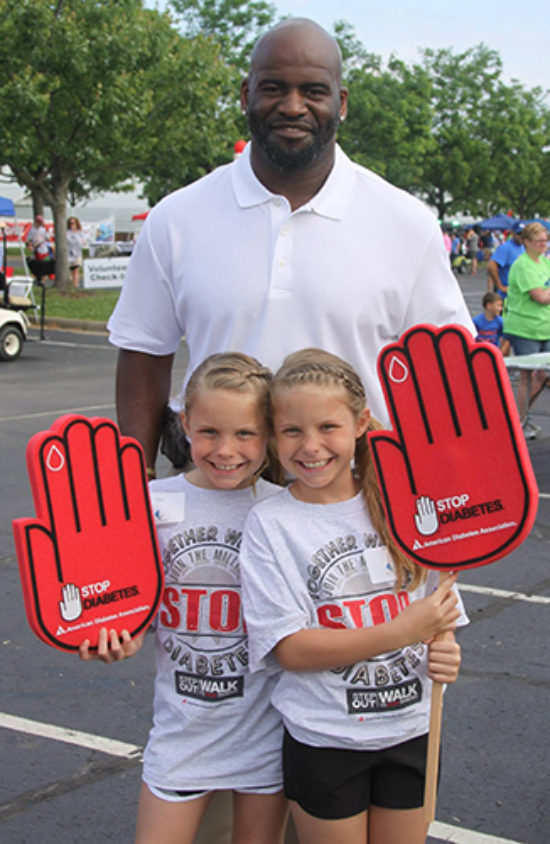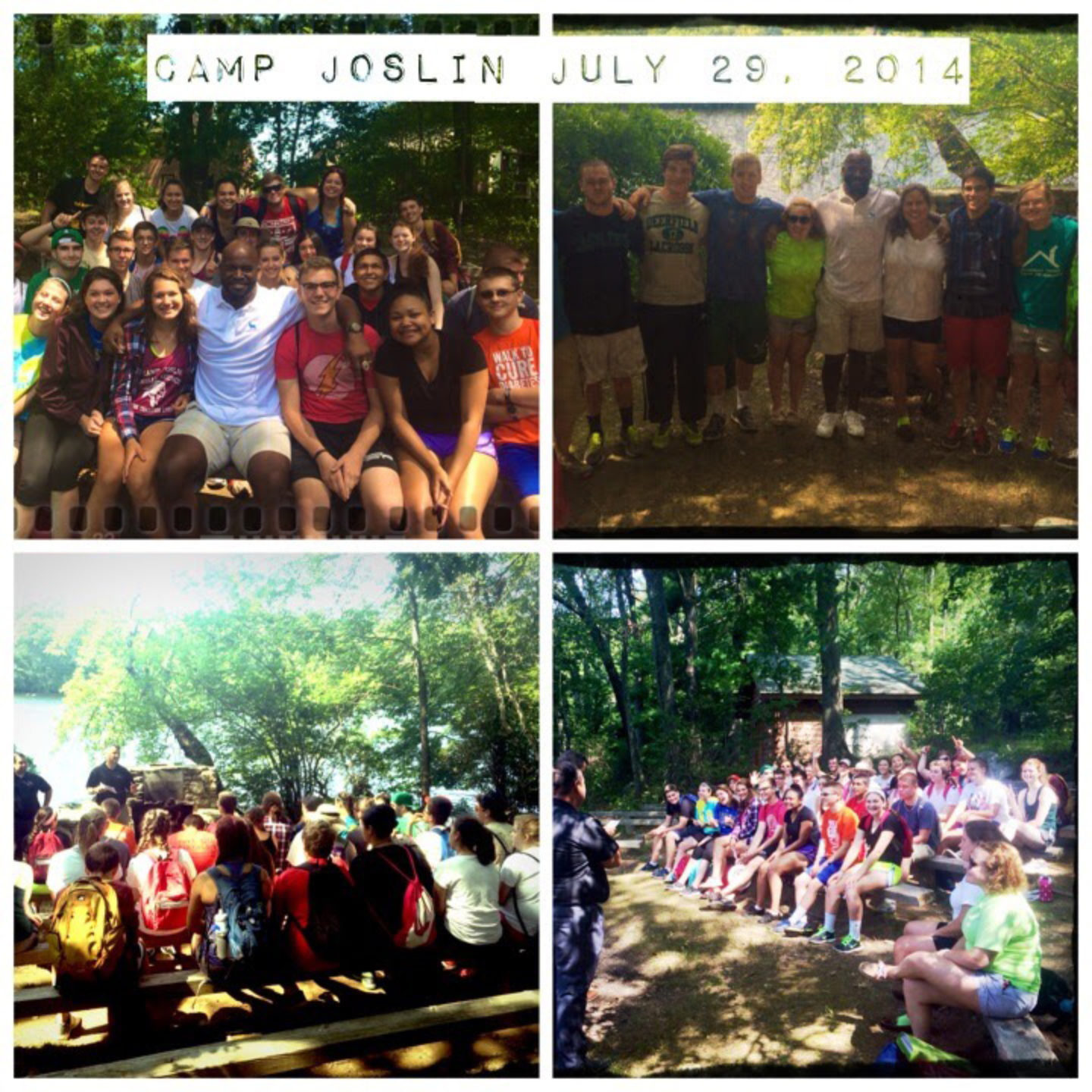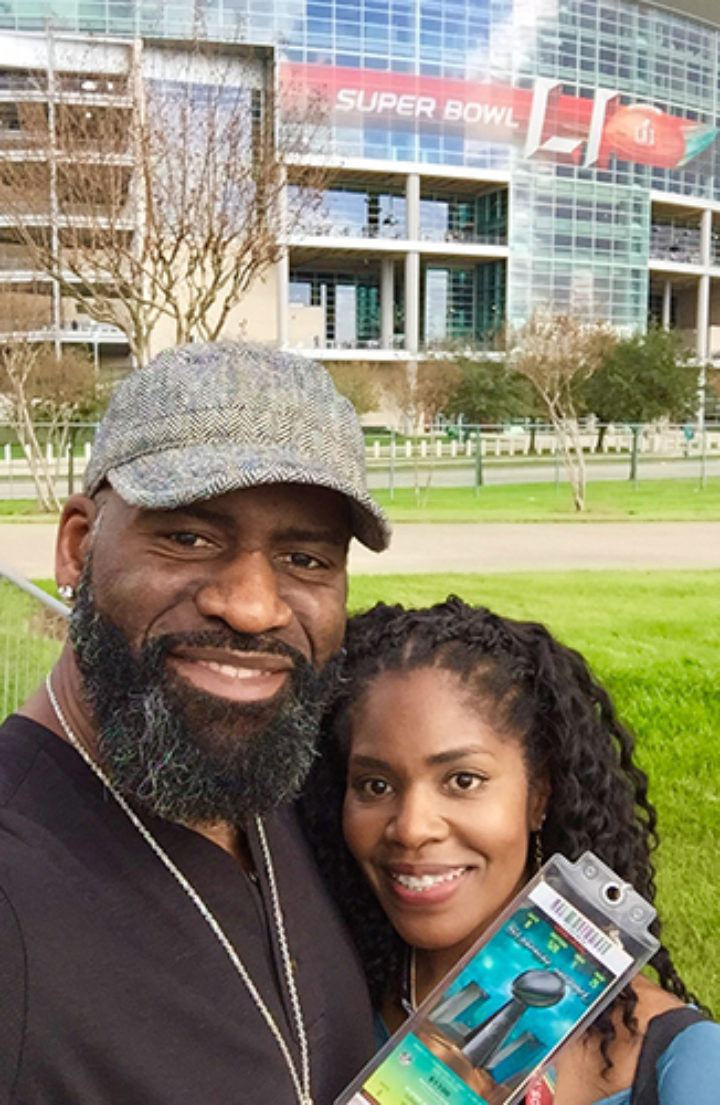It started in the summer of 2003, and in two weeks I had lost 45 pounds. It started out with 20 pounds, then 13, and all the other symptoms of diabetes, I started developing them all – From fatigue to dry mouth to thirst. It got to the point where my wife was concerned, but I felt like it was just the Alabama heat that I was training in. At that point I was getting ready for training camp, and was working out twice a day, and I just figured that I was probably overdoing it and just needed to sit down and rest for a little bit.
I drove up to Pittsburgh, about 13 hours from Auburn, and John Norwig, who is still the trainer there now, saw me and said, "Man, you don’t look good. What’s going on?" I told him, "You know, I don’t feel good. I don’t know what it is, but maybe I just overworked myself." He sent me to Dr. Anthony Yates, the team doctor, to get checked out. Once I got there, I told him what was going on and my symptoms, and he tested my blood. When he came back, he immediately said, "I think we need to get you to the emergency room right now. I think you have diabetes."
